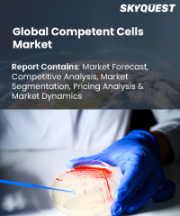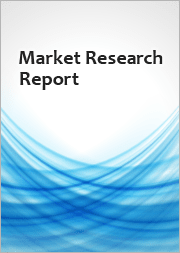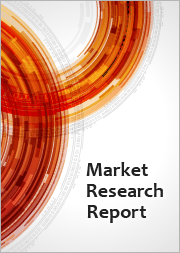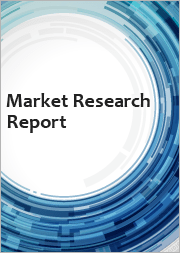
|
시장보고서
상품코드
1888704
컴피턴트 셀 시장 : 시장 규모, 점유율, 동향 분석 보고서 - 유형별, 용도별, 최종 용도별, 지역별, 부문 예측(2025-2033년)Competent Cells Market Size, Share & Trends Analysis Report By Type, By Application, By End Use, By Region, And Segment Forecasts, 2025 - 2033 |
||||||
컴피턴트 셀 시장 요약
세계의 컴피턴트 셀 시장 규모는 2024년에 22억 5,000만 달러로 평가되었고, 2033년까지 51억 2,000만 달러에 이를 것으로 예측됩니다.
이는 첨단 분자 클로닝 기술의 채용 확대, 재조합 단백질에 대한 수요 증가, 창약 및 생명공학 연구의 용도 확대에 견인되어 2025-2033년 CAGR 10.03%로 성장할 것으로 전망되고 있습니다. 유전 공학 및 합성 생물학의 발전에 따라 예측 기간 동안 효과적이고 고성능의 컴피턴트 셀 수요가 증가할 것으로 예측됩니다.
재조합 단백질 및 효소 수요 증가
재조합 단백질 및 효소 생산의 급속한 성장은 컴피턴트 셀 시장의 주요 촉진요인입니다. 바이오의약품 기업은 식품가공, 진단, 바이오연료, 바이오테크놀러지 산업에서의 용도를 위한 단일클론항체, 호르몬, 사이토카인 및 유전자 변형 미생물로부터 개발된 바이오시밀러 등의 재조합 단백질의 이용에 의존하고 있습니다. 이러한 용도 분야에서 연구실로부터 대규모 생산에 이르기까지 복제 및 발현 워크플로우를 실현하기 위해서는 컴피턴트 셀이 필수적입니다. 바이오로직 파이프라인의 확대 및 혁신적인 치료법에 대한 수요가 증가함에 따라 단백질 생산 시 높은 형질전환 효율과 수율이 요구되고 있으며, 컴피턴트 셀의 성능에 대한 수요가 급증하고 있습니다.
또한 합성 생물학 및 대사 공학의 혁신으로 지속 가능한 소재, 화학제품 및 바이오플라스틱 분야에서 재조합 효소의 용도 범위가 확대되고 있습니다. 정밀 발효 및 무세포 단백질 합성에 대한 투자가 증가함에 따라 최적화된 컴피턴트 셀 시스템에 대한 수요가 증가하고 있습니다. 연구기관 및 생명공학 기업이 클로닝 속도, 확장성, 뛰어난 발현 플랫폼에 주력하는 가운데, 창약, 단백질 공학, 산업용 바이오 제조 용도를 위한 컴피턴트 셀에 대한 수요는 계속 증가하고 있습니다.
유전 공학 및 합성 생물학의 성장
유전 공학 및 합성 생물학의 성장 분야는 컴피턴트 셀 시장의 주요 요인입니다. 이러한 분야에서는 DNA 클로닝, 플라스미드 구축, CRISPR 편집 및 미생물 공학에서 고효율의 유능한 세포가 필수적입니다. 연구 그룹이 자동화 클로닝, AI 단백질 설계, 고급 유전자 편집 워크플로우를 도입함에 따라 신뢰할 수 있는 고성능 컴피턴트 셀에 대한 수요가 계속 확대되고 있습니다.
동시에 합성생물학은 바이오 제조, 지속가능한 화학제품, 바이오연료, 정밀 농업, 바이오센서 등의 산업 용도로 빠르게 발전하고 있습니다. 미생물 균주의 설계 및 높은 처리량 스크리닝에 대한 투자가 증가함에 따라 신속하고 확장 가능하고 재현 가능한 결과를 가능하게 하는 최적화된 컴피턴트 셀 균주의 확립이 시급합니다.
자주 묻는 질문
목차
제1장 조사 방법 및 범위
제2장 주요 요약
제3장 컴피턴트 셀 시장의 변수, 동향 및 범위
- 시장 계통 전망
- 상위 시장 전망
- 관련 및 부수 시장 전망
- 시장 역학
- 컴피턴트 셀 시장 분석 툴
- 업계 분석 : Porter's Five Forces
- PESTEL 분석
제4장 컴피턴트 셀 시장 : 유형별 추정 및 동향 분석
- 세계의 컴피턴트 셀 시장 : 유형별 변동 분석
- 세계의 컴피턴트 셀 시장 규모 및 동향 분석 : 유형별(2021-2033년)
- 화학적 컴피턴트 셀
- 전기 컴피턴트 셀
- 울트라 컴피턴트 셀
제5장 컴피턴트 셀 시장 : 용도별 추정 및 동향 분석
- 세계의 컴피턴트 셀 시장 : 용도별 변동 분석
- 세계의 컴피턴트 셀 시장 규모 및 동향 분석 : 용도별(2021-2033년)
- 클로닝
- 단백질 발현
- 돌연변이 유발
- 기타
제6장 컴피턴트 셀 시장 : 최종 용도별 추정 및 동향 분석
- 세계의 컴피턴트 셀 시장 : 최종 용도별 변동 분석
- 세계의 컴피턴트 셀 시장 규모 및 동향 분석 : 용도별(2021-2033년)
- 제약 및 바이오테크놀러지 기업
- 학술기관 및 연구기관
- 기타
제7장 컴피턴트 셀 시장 : 지역별 추정 및 동향 분석
- 지역별 시장 점유율 분석(2024년, 2033년)
- 지역별 시장 대시보드
- 시장 규모 및 예측 동향 분석(2021-2033년)
- 북미
- 미국
- 캐나다
- 멕시코
- 유럽
- 영국
- 독일
- 프랑스
- 이탈리아
- 스페인
- 노르웨이
- 스웨덴
- 덴마크
- 아시아태평양
- 일본
- 중국
- 인도
- 호주
- 한국
- 태국
- 라틴아메리카
- 브라질
- 아르헨티나
- 중동 및 아프리카
- 남아프리카
- 사우디아라비아
- 아랍에미리트(UAE)
- 쿠웨이트
제8장 경쟁 구도
- 기업 및 경쟁 분류
- 전략 매핑
- 기업시장 포지셔닝 분석(-2024년)
- 기업 프로파일 및 리스트
- Thermo Fisher Scientific Inc.
- Merck KGaA
- Agilent Technologies, Inc.
- Takara Bio Inc.
- New England Biolabs(UK) Ltd.
- Promega Corporation
- Bio-Rad Laboratories
- Roche Applied Science
- Qiagen
- SGI-DNA(Synthetic Genomics, Inc.)
Competent Cells Market Summary
The global competent cells market size was estimated at USD 2.25 billion in 2024 and is projected to reach USD 5.12 billion by 2033, growing at a CAGR of 10.03% from 2025 to 2033, driven by growing adoption of advanced molecular cloning techniques, increasing demand for recombinant proteins, and expanding uses in drug discovery and biotechnology research. As genetic engineering and synthetic biology advance, the demand for effective and high-performance competent cells is expected to increase throughout the forecast period.
Increasing Demand for Recombinant Proteins & Enzymes
The rapid growth of recombinant protein and enzyme production is a key driver of the competent cells market. Biopharmaceutical firms rely on the use of recombinant proteins, such as monoclonal antibodies, hormones, cytokines, and biosimilars developed from engineered microbes, for applications in food processing, diagnostics, biofuels, and the biotech industry. Competent cells are required to enable clonal and expression workflows in these applications, for both research laboratories and larger-scale manufacturing. Competent cell performance is in high demand as biologics pipelines expand and the need for new and innovative therapies grows, prompting high transformation efficiency and yield during protein production.
In addition, innovations in synthetic biology and metabolic engineering are expanding the applications of recombinant enzymes in sustainable materials, chemicals, and bioplastics. Increased investments in precision fermentation and cell-free protein synthesis create increased demand for optimized competent cell systems. As research institutions and biotech companies focus on cloning speed, scalability, and better expression platforms, demand for competent cells continues to grow for drug discovery, protein engineering, and industrial biomanufacturing applications.
Growth in Genetic Engineering & Synthetic Biology
The growing areas of genetic engineering and synthetic biology are primary factors in the competent cells market. These areas rely on competent cells with high efficiency for DNA cloning, plasmid construction, CRISPR editing, and microbial engineering. Demand for reliable, high-performance competent cells continues to grow as research groups implement automated cloning, AI protein design, and sophisticated genome-editing workflows.
At the same time, synthetic biology is rapidly developing into industrial applications, including biomanufacturing, sustainable chemicals, biofuels, precision agriculture, and biosensors. Increased investment in microbial strain engineering and high-throughput screening is putting pressure on finding optimized competent cell lines that enable rapid, scalable, and reproducible results.
Global Component Cells Market Report Segmentation
This report forecasts revenue growth and provides an analysis on the latest trends in each of the sub-segments from 2021 to 2033. For the purpose of this report, Grand View Research has segmented the global competent cells market on the basis of type, application, end use, and region:
- Type Outlook (Revenue, USD Million, 2021 - 2033)
- Chemically Competent Cells
- Electrocompetent Cells
- Ultracompetent Cells
- Application Outlook (Revenue, USD Million, 2021 - 2033)
- Cloning
- Protein Expression
- Mutagenesis
- Others
- End Use Outlook (Revenue, USD Million, 2021 - 2033)
- Pharmaceutical & Biotechnology Companies
- Academic & Research Institutes
- Others
- Regional Outlook (Revenue, USD Million, 2021 - 2033)
- North America
- U.S.
- Canada
- Mexico
- Europe
- Germany
- UK
- France
- Italy
- Spain
- Denmark
- Sweden
- Norway
- Asia Pacific
- China
- Japan
- India
- South Korea
- Australia
- Thailand
- Latin America
- Brazil
- Argentina
- MEA
- South Africa
- Saudi Arabia
- UAE
- Kuwait
Table of Contents
Chapter 1. Methodology and Scope
- 1.1. Market Segmentation and Scope
- 1.2. Market Definitions
- 1.2.1. Type
- 1.2.2. Application
- 1.2.3. End Use
- 1.3. Information analysis
- 1.4. Market formulation & data visualization
- 1.5. Data validation & publishing
- 1.6. Information Procurement
- 1.6.1. Primary Research
- 1.7. Information or Data Analysis
- 1.8. Market Formulation & Validation
- 1.9. Market Model
- 1.10. Objectives
Chapter 2. Executive Summary
- 2.1. Market Outlook
- 2.2. Segment Snapshot
- 2.3. Competitive Landscape Snapshot
Chapter 3. Competent Cells Market Variables, Trends & Scope
- 3.1. Market Lineage Outlook
- 3.1.1. Parent market outlook
- 3.1.2. Related/ancillary market outlook.
- 3.2. Market Dynamics
- 3.2.1. Market driver analysis
- 3.2.1.1. Increasing demand for recombinant proteins & enzymes
- 3.2.1.2. Growth in genetic engineering & synthetic biology
- 3.2.2. Market restraint analysis
- 3.2.2.1. High Costs of Competent Cells
- 3.2.1. Market driver analysis
- 3.3. Competent Cells Market Analysis Tools
- 3.3.1. Industry Analysis - Porter's
- 3.3.2. PESTEL Analysis
Chapter 4. Competent Cells Market: Type Estimates & Trend Analysis
- 4.1. Segment Dashboard
- 4.2. Global Competent Cells Market Type Movement Analysis
- 4.3. Global Competent Cells Market Size & Trend Analysis, by Type, 2021 to 2033 (USD Million)
- 4.4. Chemically Competent Cells
- 4.4.1. Chemically competent cells market estimates and forecasts 2021 to 2033 (USD Million)
- 4.5. Electrocompetent Cells
- 4.5.1. Electrocompetent cells market estimates and forecasts 2021 to 2033 (USD Million)
- 4.6. Ultracompetent Cells
- 4.6.1. Ultracompetent cells market estimates and forecasts 2021 to 2033 (USD Million)
Chapter 5. Competent Cells Market: Application Estimates & Trend Analysis
- 5.1. Segment Dashboard
- 5.2. Global Competent Cells Market Application Movement Analysis
- 5.3. Global Competent Cells Market Size & Trend Analysis, by Application, 2021 to 2033 (USD Million)
- 5.4. Cloning
- 5.4.1. Cloning market estimates and forecasts 2021 to 2033 (USD Million)
- 5.5. Protein Expression
- 5.5.1. Protein expression market estimates and forecasts 2021 to 2033 (USD Million)
- 5.6. Mutagenesis
- 5.6.1. Mutagenesis market estimates and forecasts 2021 to 2033 (USD Million)
- 5.7. Others
- 5.7.1. Others market estimates and forecasts 2021 to 2033 (USD Million)
Chapter 6. Competent Cells Market: End Use Estimates & Trend Analysis
- 6.1. Segment Dashboard
- 6.2. Global Competent Cells Market End-use Movement Analysis
- 6.3. Global Competent Cells Market Size & Trend Analysis, by End-use, 2021 to 2033 (USD Million)
- 6.4. Pharmaceutical & Biotechnology Companies
- 6.4.1. Pharmaceutical & biotechnology companies market estimates and forecasts 2021 to 2033 (USD Million)
- 6.5. Academic & Research Institutes
- 6.5.1. Academic & research institutes market estimates and forecasts 2021 to 2033 (USD Million)
- 6.6. Others
- 6.6.1. Others market estimates and forecasts 2021 to 2033 (USD Million)
Chapter 7. Competent Cells Market: Regional Estimates & Trend Analysis
- 7.1. Regional Market Share Analysis, 2024 & 2033
- 7.2. Regional Market Dashboard
- 7.3. Market Size, & Forecasts Trend Analysis, 2021 to 2033:
- 7.4. North America
- 7.4.1. North America market estimates and forecasts 2021 to 2033 (USD Million)
- 7.4.2. U.S.
- 7.4.2.1. Key country dynamics
- 7.4.2.2. Regulatory framework
- 7.4.2.3. Competitive scenario
- 7.4.2.4. U.S. market estimates and forecasts 2021 to 2033 (USD Million)
- 7.4.3. Canada
- 7.4.3.1. Key country dynamics
- 7.4.3.2. Regulatory framework
- 7.4.3.3. Competitive scenario
- 7.4.3.4. Canada market estimates and forecasts 2021 to 2033 (USD Million)
- 7.4.4. Mexico
- 7.4.4.1. Key country dynamics
- 7.4.4.2. Regulatory framework
- 7.4.4.3. Competitive scenario
- 7.4.4.4. Mexico market estimates and forecasts 2021 to 2033 (USD Million)
- 7.5. Europe
- 7.5.1. Europe market estimates and forecasts 2021 to 2033 (USD Million)
- 7.5.2. UK
- 7.5.2.1. Key country dynamics
- 7.5.2.2. Regulatory framework
- 7.5.2.3. Competitive scenario
- 7.5.2.4. UK market estimates and forecasts 2021 to 2033 (USD Million)
- 7.5.3. Germany
- 7.5.3.1. Key country dynamics
- 7.5.3.2. Regulatory framework
- 7.5.3.3. Competitive scenario
- 7.5.3.4. Germany market estimates and forecasts 2021 to 2033 (USD Million)
- 7.5.4. France
- 7.5.4.1. Key country dynamics
- 7.5.4.2. Regulatory framework
- 7.5.4.3. Competitive scenario
- 7.5.4.4. France market estimates and forecasts 2021 to 2033 (USD Million)
- 7.5.5. Italy
- 7.5.5.1. Key country dynamics
- 7.5.5.2. Regulatory framework
- 7.5.5.3. Competitive scenario
- 7.5.5.4. Italy market estimates and forecasts 2021 to 2033 (USD Million)
- 7.5.6. Spain
- 7.5.6.1. Key country dynamics
- 7.5.6.2. Regulatory framework
- 7.5.6.3. Competitive scenario
- 7.5.6.4. Spain market estimates and forecasts 2021 to 2033 (USD Million)
- 7.5.7. Norway
- 7.5.7.1. Key country dynamics
- 7.5.7.2. Regulatory framework
- 7.5.7.3. Competitive scenario
- 7.5.7.4. Norway market estimates and forecasts 2021 to 2033 (USD Million)
- 7.5.8. Sweden
- 7.5.8.1. Key country dynamics
- 7.5.8.2. Regulatory framework
- 7.5.8.3. Competitive scenario
- 7.5.8.4. Sweden market estimates and forecasts 2021 to 2033 (USD Million)
- 7.5.9. Denmark
- 7.5.9.1. Key country dynamics
- 7.5.9.2. Regulatory framework
- 7.5.9.3. Competitive scenario
- 7.5.9.4. Denmark market estimates and forecasts 2021 to 2033 (USD Million)
- 7.6. Asia Pacific
- 7.6.1. Asia Pacific market estimates and forecasts 2021 to 2033 (USD Million)
- 7.6.2. Japan
- 7.6.2.1. Key country dynamics
- 7.6.2.2. Regulatory framework
- 7.6.2.3. Competitive scenario
- 7.6.2.4. Japan market estimates and forecasts 2021 to 2033 (USD Million)
- 7.6.3. China
- 7.6.3.1. Key country dynamics
- 7.6.3.2. Regulatory framework
- 7.6.3.3. Competitive scenario
- 7.6.3.4. China market estimates and forecasts 2021 to 2033 (USD Million)
- 7.6.4. India
- 7.6.4.1. Key country dynamics
- 7.6.4.2. Regulatory framework
- 7.6.4.3. Competitive scenario
- 7.6.4.4. India market estimates and forecasts 2021 to 2033 (USD Million)
- 7.6.5. Australia
- 7.6.5.1. Key country dynamics
- 7.6.5.2. Regulatory framework
- 7.6.5.3. Competitive scenario
- 7.6.5.4. Australia market estimates and forecasts 2021 to 2033 (USD Million)
- 7.6.6. South Korea
- 7.6.6.1. Key country dynamics
- 7.6.6.2. Regulatory framework
- 7.6.6.3. Competitive scenario
- 7.6.6.4. South Korea market estimates and forecasts 2021 to 2033 (USD Million)
- 7.6.7. Thailand
- 7.6.7.1. Key country dynamics
- 7.6.7.2. Regulatory framework
- 7.6.7.3. Competitive scenario
- 7.6.7.4. Thailand market estimates and forecasts 2021 to 2033 (USD Million)
- 7.7. Latin America
- 7.7.1. Latin America market estimates and forecasts 2021 to 2033 (USD Million)
- 7.7.2. Brazil
- 7.7.2.1. Key country dynamics
- 7.7.2.2. Regulatory framework
- 7.7.2.3. Competitive scenario
- 7.7.2.4. Brazil market estimates and forecasts 2021 to 2033 (USD Million)
- 7.7.3. Argentina
- 7.7.3.1. Key country dynamics
- 7.7.3.2. Regulatory framework
- 7.7.3.3. Competitive scenario
- 7.7.3.4. Argentina market estimates and forecasts 2021 to 2033 (USD Million)
- 7.8. MEA
- 7.8.1. MEA market estimates and forecasts 2021 to 2033 (USD Million)
- 7.8.2. South Africa
- 7.8.2.1. Key country dynamics
- 7.8.2.2. Regulatory framework
- 7.8.2.3. Competitive scenario
- 7.8.2.4. South Africa market estimates and forecasts 2021 to 2033 (USD Million)
- 7.8.3. Saudi Arabia
- 7.8.3.1. Key country dynamics
- 7.8.3.2. Regulatory framework
- 7.8.3.3. Competitive scenario
- 7.8.3.4. Saudi Arabia market estimates and forecasts 2021 to 2033 (USD Million)
- 7.8.4. UAE
- 7.8.4.1. Key country dynamics
- 7.8.4.2. Regulatory framework
- 7.8.4.3. Competitive scenario
- 7.8.4.4. UAE market estimates and forecasts 2021 to 2033 (USD Million)
- 7.8.5. Kuwait
- 7.8.5.1. Key country dynamics
- 7.8.5.2. Regulatory framework
- 7.8.5.3. Competitive scenario
- 7.8.5.4. Kuwait market estimates and forecasts 2021 to 2033 (USD Million)
Chapter 8. Competitive Landscape
- 8.1. Company/Competition Categorization
- 8.2. Strategy Mapping
- 8.3. Company Market Position Analysis, 2024
- 8.4. Company Profiles/Listing
- 8.4.1. Thermo Fisher Scientific Inc.
- 8.4.1.1. Company overview
- 8.4.1.2. Financial performance
- 8.4.1.3. Product benchmarking
- 8.4.1.4. Strategic initiatives
- 8.4.2. Merck KGaA
- 8.4.2.1. Company overview
- 8.4.2.2. Financial performance
- 8.4.2.3. Product benchmarking
- 8.4.2.4. Strategic initiatives
- 8.4.3. Agilent Technologies, Inc.
- 8.4.3.1. Company overview
- 8.4.3.2. Financial performance
- 8.4.3.3. Product benchmarking
- 8.4.3.4. Strategic initiatives
- 8.4.4. Takara Bio Inc.
- 8.4.4.1. Company overview
- 8.4.4.2. Financial performance
- 8.4.4.3. Product benchmarking
- 8.4.4.4. Strategic initiatives
- 8.4.5. New England Biolabs (UK) Ltd.
- 8.4.5.1. Company overview
- 8.4.5.2. Financial performance
- 8.4.5.3. Product benchmarking
- 8.4.5.4. Strategic initiatives
- 8.4.6. Promega Corporation
- 8.4.6.1. Company overview
- 8.4.6.2. Financial performance
- 8.4.6.3. Product benchmarking
- 8.4.6.4. Strategic initiatives
- 8.4.7. Bio-Rad Laboratories
- 8.4.7.1. Company overview
- 8.4.7.2. Financial performance
- 8.4.7.3. Product benchmarking
- 8.4.7.4. Strategic initiatives
- 8.4.8. Roche Applied Science
- 8.4.8.1. Company overview
- 8.4.8.2. Financial performance
- 8.4.8.3. Product benchmarking
- 8.4.8.4. Strategic initiatives
- 8.4.9. Qiagen
- 8.4.9.1. Company overview
- 8.4.9.2. Financial performance
- 8.4.9.3. Product benchmarking
- 8.4.9.4. Strategic initiatives
- 8.4.10. SGI-DNA (Synthetic Genomics, Inc.)
- 8.4.10.1. Company overview
- 8.4.10.2. Financial performance
- 8.4.10.3. Product benchmarking
- 8.4.10.4. Strategic initiatives
- 8.4.1. Thermo Fisher Scientific Inc.
(주말 및 공휴일 제외)









